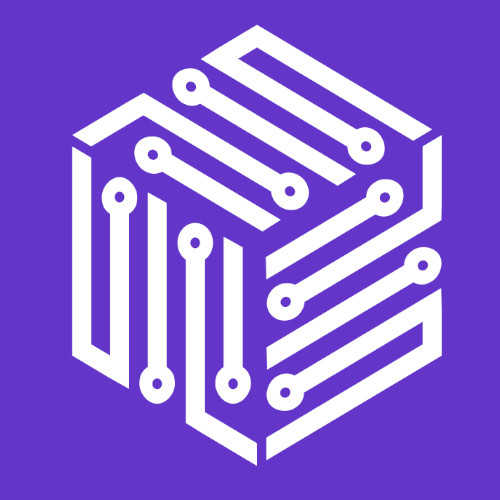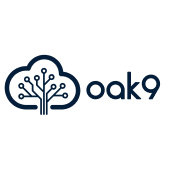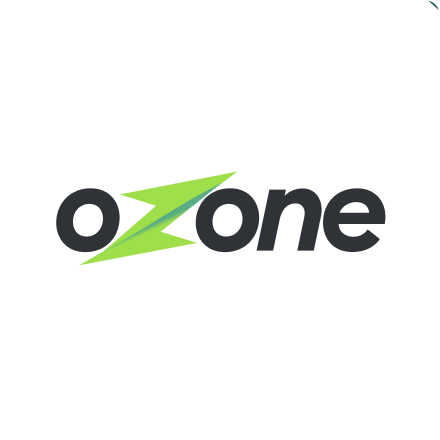What Are The Recent Trends In DevOps Tools?
The technologies that enable the DevOps culture are growing and changing along with it. Buyers of DevOps products should be aware of the following current trends:
1. Automated Testing Tools: As continuous integration and deployment have grown in popularity, so too has the need for automated testing tools. By detecting and resolving problems early in the development process, these tools guarantee software quality and expedite delivery.
2. Containerization Tools: Organizations seeking to increase the scalability and portability of their systems are increasingly using containerization. Consequently, DevOps teams now depend heavily on containerization solutions like Docker and Kubernetes.
3. Cloud-Based Tools: The tools utilized in the DevOps process have also been changed by the advent of cloud computing. Cloud-based versions of many DevOps tools are now available, enabling teams to access and work together on projects at any time and from any location.
4. ChatOps Tools: In recent years, ChatOps the use of chat platforms for DevOps automation and collaboration has become more popular. Teams can communicate and collaborate more easily with ChatOps systems like Slack and Microsoft Teams since they integrate with well-known DevOps tools.
5. Tools For Artificial Intelligence And Machine Learning: As a result of the application of AI and ML in software development, tools that can help with operations management, testing, and code reviews have emerged. The DevOps process can become more accurate and efficient with the help of these tools.
6. Low-Code And No-Code Tools: Low-code and no-code tools have emerged as a result of the growth of citizen developers and the demand for quicker and more agile development. By enabling participation from non-technical team members, these solutions expedite delivery and decrease dependencies.
7. Tools For DevSecOps: Security is becoming a more significant component of the DevOps process. DevSecOps tools, which include security into the development process, have become more and more popular as a result. It's critical to stay abreast of these developments and select DevOps solutions that complement the objectives and requirements of your company. Your DevOps team can deploy software more quickly and effectively with the correct tools.
Benefits Of Using DevOps Tools
The popular DevOps methodology places a strong emphasis on cooperation and communication between the operations and software development teams. It seeks to lessen team disagreements while enhancing software delivery's speed, quality, and dependability. By automating procedures, optimizing workflows, and encouraging cooperation, DevOps solutions are essential to reaching these objectives. The following are the main advantages of implementing DevOps tools in your company:
1. Better Collaboration And Communication: One of the main advantages of DevOps technologies is that they help teams communicate and work together more effectively. These solutions facilitate collaboration between development and operations teams by dismantling organizational silos, allowing them to work toward a shared objective and increasing productivity and efficiency.
2. Enhanced Speed And Efficiency: Software deployment takes less time and effort when manual and repetitive operations are automated by the appropriate DevOps technologies. As a result, high-quality software is delivered more quickly, allowing businesses to meet the market's rising demands.
3. Improved Product Quality: The development and operations teams can collaborate closely with DevOps tools, which leads to improved feedback loops. As a result, problems are found and fixed more quickly, improving the quality of the final product and increasing customer happiness.
4. Consistent And Reliable Releases: By automating the complete software delivery process, DevOps solutions help guarantee releases are consistent and dependable. By doing this, the possibility of human error is eliminated, downtime is decreased, and the user experience is enhanced overall.
5. Cost Savings: DevOps solutions assist in lowering the expenses related to software development and deployment by automating procedures and optimizing workflows. Additionally, companies may launch products faster and generate more income with speedier software delivery.
6. Scalability And Flexibility: Teams may readily scale up or down their infrastructure in accordance with project needs thanks to DevOps tools. This enables businesses to be flexible and react fast to market shifts. Additionally, it gives them a competitive edge by allowing them to test and deliver new features more regularly.
7. Improved Tracking And Visibility: DevOps solutions offer real-time tracking, reporting, and monitoring of the complete software delivery process. Teams are able to spot bottlenecks and make the required adjustments for next releases because to the increased visibility into each stage that this provides.
What Are The Key Features To Look For In DevOps Tools?
DevOps solutions are now essential for businesses trying to optimize their software development processes in the rapidly changing and fast-paced tech industry of today. By bridging the gap between operations and development teams, these tools foster efficiency and teamwork. But with so many DevOps solutions on the market, it can be difficult for customers to decide which one is best for their company. Here are the main characteristics to search for in DevOps tools to make sure you make an informed choice:
1. Automation Capabilities: Automation is a key component of DevOps technologies. These technologies ought to be able to automate a number of functions, including deployment, testing, and building procedures. This improves the software's overall quality by lowering the possibility of human error in addition to saving time and effort.
2. Platform Integration: DevOps technologies ought to be able to easily interface with a range of platforms, including as server environments, cloud services, and collaboration applications. As a result, the workflow becomes more synchronized and efficient, guaranteeing that all teams are in agreement.
3. Configuration Management: Because it makes it possible to manage code and infrastructure consistently, configuration management is essential to DevOps. To guarantee seamless and effective codebase management, look for features like version control, configuration tracking, and rollback capabilities in DevOps solutions.
4. Real-Time Reporting And Monitoring: Continuous tracking and monitoring of the development and deployment processes is a crucial component of DevOps. Seek out solutions that provide configurable reports and real-time monitoring so you can quickly detect and resolve any problems.
5. Flexibility And Scalability: Your DevOps procedures must expand together with your company. As a result, selecting solutions that are adaptable and can accommodate your organization's evolving needs over time is crucial.
6. Features For Collaboration And Communication: The main goal of DevOps is to encourage cooperation and communication between the operations and development teams. To help your teams communicate and work together more effectively, look for options like chat, dashboards, and notifications.
7. Security And Compliance: As cyber threats get more complex, security and compliance are now important factors to take into account when developing software. To guarantee the security of your software, look for DevOps solutions that have security features like encryption and compliance auditing. You may select the best DevOps tools for your company that will improve teamwork, increase productivity, and produce high-caliber software by taking into account these important characteristics. To choose the right tool for your company, consider the unique requirements and objectives of your corporation.
Why Do Businesses Need DevOps Tools?
Companies nowadays are under more and more pressure to offer goods and services more quickly without sacrificing quality. In this fast-paced, dynamic world, the conventional siloed approach to IT operations and software development is no longer effective. DevOps can help with this. DevOps is a collection of methods and ideas that encourage cooperation, dialogue, and integration between teams working on development and operations.
It seeks to increase overall software development and delivery efficiency by automating tasks and streamlining procedures. Businesses require a collection of tools created especially to support the DevOps culture and practices in order to get the most out of DevOps. With the automation, scalability, and efficiency that these DevOps solutions offer, businesses may increase customer satisfaction, quality, and delivery timeframes.
Automating procedures is one of the primary reasons why companies want DevOps technologies. Software development, testing, and deployment are examples of manual operations that can be automated with the help of DevOps tools. Businesses can save a great deal of time and effort by automating these repetitive operations, freeing up staff to concentrate on more important work and increasing productivity all around.
Additionally, DevOps tools facilitate better team collaboration. These tools dismantle organizational walls and promote a collaborative and communicative culture by giving developers, testers, and operational teams a common platform on which to collaborate. Better synchronization, quicker problem solving, and enhanced teamwork are the outcomes of this. The scalability of DevOps technologies is another important feature.
Businesses' software infrastructure expands along with them. Scalability and flexibility offered by DevOps solutions enable businesses to adjust to shifting demands without sacrificing stability or quality. Additionally, software development and deployment process visibility and traceability are provided by DevOps technologies. This makes it simpler for companies to troubleshoot and promptly fix issues by enabling them to log changes, identify problems, and continuously monitor performance.
Which Industries Can benefit The Most From DevOps Tools?
DevOps solutions, which give teams productivity, teamwork, and automation to optimize their workflow, have become a crucial component of the software development and delivery process. Although companies in a variety of industries can benefit from these tools, some sectors stand to gain more from DevOps than others.
1. Technology And IT Services: It should come as no surprise that one of the biggest users of DevOps tools is the technology and IT services sector. With the help of these technologies, teams can automate testing, continually integrate and deploy code, and track the performance of apps. Tech firms can produce high-quality products more quickly with greater efficiency and real-time feedback.
2. E-commerce: Any delays in product releases or outages can lead to a large loss of money in the quick-paced world of e-commerce. Online merchants can test and release changes more rapidly and effectively with the help of DevOps tools, giving customers a flawless shopping experience. Businesses may make data-driven decisions for improved client engagement by using these technologies, which also offer insightful information about user activity.
3. Banking And Finance: The banking and finance sector handles delicate and intricate applications that need a high degree of dependability and security. While maintaining system security and compliance, DevOps tools assist companies in this industry in testing and deploying changes on a continual basis. Financial institutions can maintain their competitiveness by quickly introducing new features and services with the help of these tools.
4. Healthcare: The healthcare sector is a strong candidate for DevOps technologies since it handles sensitive patient data and is subject to stringent laws. These solutions can help improve the delivery of innovative healthcare services and technologies, automate compliance inspections, and protect data privacy. Healthcare companies may increase operational agility, teamwork, and security by implementing DevOps techniques.
5. Education: From digital student services to online learning platforms, the education sector is progressively integrating technology into its operations. By delivering and updating these digital services effectively and securely, DevOps tools may help educational institutions give staff and students a more seamless experience. For improved analysis and decision-making, these tools can also help manage and monitor vast volumes of data.
Conclusion
To sum up, DevOps technologies are essential for any company trying to improve the effectiveness and agility of its operations and software development processes. These solutions have the potential to significantly increase the overall quality and speed of software development by optimizing workflows, automating operations, and encouraging cooperation. It's critical to evaluate your organization's unique demands and objectives when deciding which DevOps technologies to purchase.
This entails assessing the complexity of your projects, the size of your team, and the degree of integration required with current systems. In addition, it is crucial to take into account the tools' ease of use, interoperability with various platforms, scalability, and adaptability. A successful and fulfilling adoption can also be ensured by reading customer reviews and thoroughly investigating the standing and assistance of the tool's supplier.
Understanding your particular needs and picking a complete and dependable solution are ultimately the keys to selecting the best DevOps tools. Given how quickly technology is developing, it's also critical to keep an eye on and upgrade your toolkit in order to stay ahead of the always shifting software development and operations landscape. Organizations can achieve higher success and customer happiness by utilizing the power of DevOps tools to create continuous improvement and success in their processes.






















